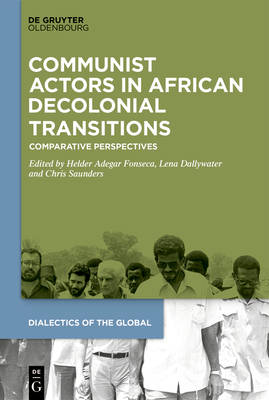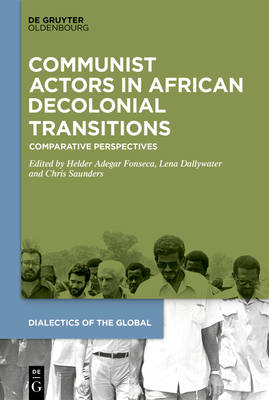
- Afhalen na 1 uur in een winkel met voorraad
- Gratis thuislevering in België vanaf € 30
- Ruim aanbod met 7 miljoen producten
- Afhalen na 1 uur in een winkel met voorraad
- Gratis thuislevering in België vanaf € 30
- Ruim aanbod met 7 miljoen producten
Communist Actors in African Decolonial Transitions
Comparative Perspectives
Omschrijving
In the long and protracted process of decolonization in sub-Saharan Africa (1957-1994), three key moments in the transitions from colonial/white-ruled states to independent majority-ruled states can be identified: 1957-1965, 1974-1980, and 1988-1994. These transitional phases of decolonization in sub-Saharan Africa - the beginnings of the process, a crucial turning-point in that process, and its endings - are worthy of reappraisal and invite comparisons of various kinds. The existing literature does not consider the roles of communist actors in these transitions from a comparative perspective. This is the main focus of this volume, which will be an essential work for scholars of African decolonization and will interest anyone concerned with the history of communism and the external activities of the countries of the Soviet bloc and other communist actors.
Specificaties
Betrokkenen
- Uitgeverij:
Inhoud
- Aantal bladzijden:
- 250
- Taal:
- Engels
- Reeks:
- Reeksnummer:
- nr. 22
Eigenschappen
- Productcode (EAN):
- 9783111554549
- Verschijningsdatum:
- 20/10/2025
- Uitvoering:
- Hardcover
- Formaat:
- Genaaid
- Afmetingen:
- 156 mm x 234 mm
- Gewicht:
- 703 g

Alleen bij Standaard Boekhandel
Beoordelingen
We publiceren alleen reviews die voldoen aan de voorwaarden voor reviews. Bekijk onze voorwaarden voor reviews.







